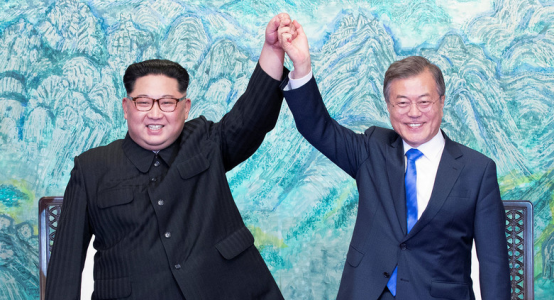"The world conference of journalists has been held in South Korea which involved the representatives of 40 states, including Germany, the US, France and many other European and Asian states. Among the CIS: Kazakhstan, Kyrgyzstan, Uzbekistan, Russia and Georgia took part in the conference. The conference was entitled "Role of journalists in provision of peace on Korean peninsula," said KazTAG reporter.
Mass media representatives were involved in an active discussion as it calls concerns throughout the world.
"In my opinion, the report of Theresa Pfuetzer, reporter of Die Welt German newspaper, was very interesting. She said that journalists cannot establish peace on the Korean Peninsula; this is the task of politicians, government officials and diplomats. And what does “peace” mean in this region? Reforms in North Korea or this country without nuclear weapons? The reunification of the two states with different political and economic systems, but without a border? The Korean peninsula has a size approximately equal to the UK territory, but it has contrasts that the whole world is trying to understand now, ” said Bayan Ramazanova, executive secretary of the Union of Journalists of Kazakhstan.
“Speaking of two countries and their people, Pfuetzer gave an example of her own country - Germany. The union of the GDR and the FRG took place 40 years ago, but people still call each other as : "They are from the West, and they are from the East." The technical unification of the state happened quickly, but mentally - it continues up to date. The breakdown of friendly, family and kinship ties affected people's destinies. Therefore, if peace comes today on the Korean Peninsula, then a lot of strength and goodwill will be needed for mutual understanding, ” she said.
The reporter also indicated another important issue - ethics and responsibility of journalists. She called on fellow writers to carefully select facts, cover events, themes and forecasts, especially those which concern the inter-states issues, nuclear weapons, and so on. For example, if the head of one state threatens another with a nuclear strike or another form of aggression, this is not a reason to put these threats in the headlines in search of big-selling news or to show marching soldiers and report about the war.
“Deliberate provocations are used to attract the attention of media and public, and journalists should not play along with populist politicians, whether in Germany, Turkey, the United States or in any other state," she said.
“The whole community, including journalists, must have patience for peace to be established on the Korean Peninsula. Reporters often predict that any world conflict will end in a dramatic collision, but this is not the case. Each conflict has a unique dynamics and time, and the task of the journalists is not to blow up a new war that could threaten the world civilization. The work of the journalist is to create an overall picture and draw a more positive, constructive perspective,” she added.
Photo source: picture from an open source
